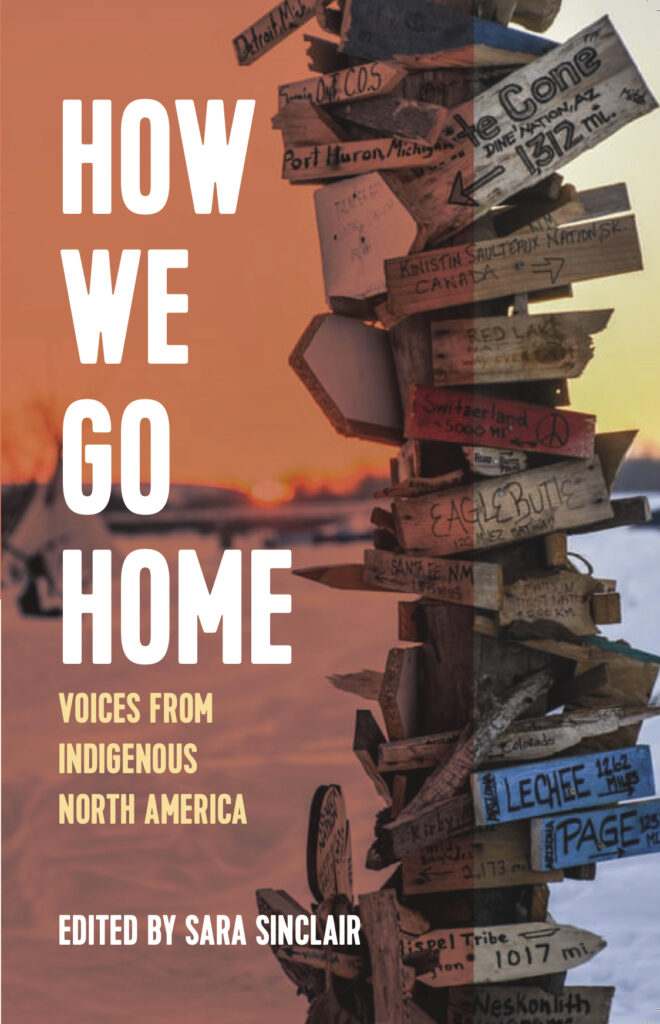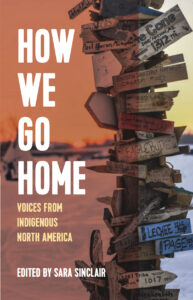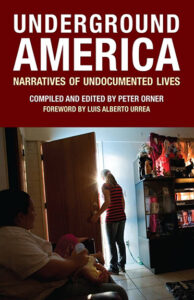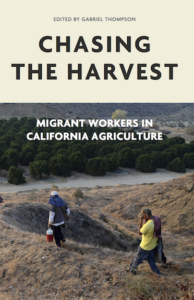The Voice of Witness book series amplifies the stories of people directly impacted by—and fighting against—injustice. We use an oral history methodology that combines ethics-driven practices, journalistic integrity, and an engaging, literary approach.
The books explore issues of inequity and human rights through the lens of personal narrative. Each project aims to disrupt harmful narratives by supporting historically marginalized or silenced communities to tell their own stories in their own words.
Book clubs are useful tools for engaging and interacting with these oral histories and the issues they highlight. Find our handout with guidance on planning and facilitating one here.
Use the questions below to start a book club for How We Go Home: Voices from Indigenous North America.

Discussion Questions:
- All of the narrators in How We Go Home speak about traumatic experiences in their lives, families, and communities. How do these events create challenges in the lives of the narrators? How do each of the narratives reflect Indigenous experiences of joy and happiness? Why should suffering not be the primary lens through which we understand Indigenous histories, experiences, and perspectives?
- Narrator Gladys Radyk remembers the “murderous thoughts” she carried when she saw her abuser in her hometown. How does her anger have negative effects on her life? How does it propel her toward action for her community?
- Narrator Jasilyn Charger speaks about her experience growing up in foster homes. What effect does foster care and adoption have on Indigenous families? How does controlling/breaking apart Indigenous families relate to the ideas and aims of colonization?
- Narrators Gladys Radek, Jasilyn Charger, Ashley Hemmers, and Ervin Chartrand speak about lateral violence in Indigenous communities and feeling unsafe in the family home and/or community. What connection does lateral violence have to colonization and cultural genocide? How does discussing lateral violence and its connection to colonization help dismantle stereotypes about Indigenous peoples?
- The Wizipan Little Elk narrative opens with a story from Indigenous oral tradition and contains information on pre-colonial coming-of-age ceremonies. How do the stories in How We Go Home showcase the resiliency of Indigenous cultures? What other examples of cultural wealth and strength in the face of oppression do you see in other narrations in the book?
- Narrator Wizipan Little Elk talks about what it means to be a “good relative” and why treaties are familial bonds. Narrator Marian Naranjo talks about the importance of creating a shared narrative. How are treaties like contracts? What is the story they tell?
- Narrator Robert Ornelas recounts his struggle with alcohol addiction and how he gains sobriety. In the dominant society, mental health issues (such as substance use disorders) are often framed as a moral failure instead of the consequence of historical events and contemporary structural issues. How does this misguided idea relate to systemic racism?
- Narrator Ervin Chartrand talks about the push–pull of migration between his rural/on-reserve community and the city. What challenges do Indigenous peoples experience while living in an urban environment? What opportunities do cities offer?
- Narrator Marian Naranjo talks about being skilled at pre-colonial forms of Indigenous art and ways of thinking, and how these skills were not valued in the education system. How can schools and educational institutions support people like Marian?
- Narrator Marian Naranjo speaks about the dominant society’s concept of “development,” while narrator Wizipan Little Elk reflects on the dominant society’s definition of “success.” How does culture determine our attitudes and beliefs?
- Narrators Althea Guiboche and Blaine Wilson both mention “neighbors helping neighbors” within Indigenous communities. How has this support played a role in the resilience of Indigenous communities?
- Were there themes or ideas in How We Go Home that surprised or challenged you? Has your understanding and perception of Indigenous peoples changed after reading these narratives? If so, how?



